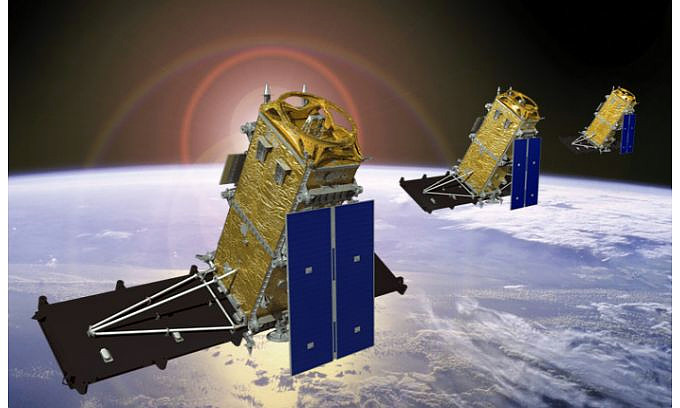With millions of acres of land under their purview, organizations that transform
the earth’s raw resources into the products we use every day have a
responsibility to manage operations to protect natural environments. However,
many places have constantly changing, intersectional borders so the lines
between production zones and natural environment are not easily identified.
Organizational sustainability goals have become key aspects of business
strategy, but the logistics of implementing actionable policy across giant
supply chains remains a challenge due to various constraints such as logistics
and data freshness.
Private companies developing sustainability practices must identify the right
partners. This is especially true in the technology space, where the right tools
significantly impact business goals and corporate social responsibility
initiatives. Innovative technology designed to increase efficiencies and
effectiveness has already achieved measurable results for organizations
worldwide.
Robotics technology supports forest conservation in Indonesia
In Indonesia, rainforest conservation efforts have surged to protect
indigenous species and support local communities that rely on the natural forest
resources. Asia Pulp &
Paper (APP),
which headquarters its sourcing operations in Jakarta, identified an
opportunity to partner with a trusted technology provider to better manage
conservation efforts and play an active role to end deforestation.
MDA, a Maxar Technologies company, is an
internationally recognized leader in space robotics, space sensors, satellite
payloads and more. The data collected by MDA technology is ideally suited to aid
markets that require either broad-area monitoring or targeted surveillance –
maritime surveillance, defense and security, land use
management,
agriculture,
disaster management and natural resources management. APP engaged with
Canada-based MDA in 2016 to establish a better system to track forest cover
loss
in conservation areas throughout its plantation properties.
MDA’s Forest Alert Service (FAS) is a near-real-time, operational satellite
service that uses global, high-resolution surveillance capabilities to monitor
forest conditions and identify areas of loss. Focused on protecting natural
forest, the service monitors all APP supplier concessions, penetrating cloud and
precipitation, to detect subtle forest disturbances in areas as small as 0.5
hectares. MDA delivers near-real-time alerts to APP’s enterprise Geographic
Information System, so that APP workers may begin field investigations to
assess potential situations in a timely manner.
 Image credit: MDA
Image credit: MDA
Three years into the partnership, MDA and APP have made a significant impact on
preserving protected land. Via this advanced monitoring program, APP is able to
quickly react to forest change due to illegal activities – improving the
efficiency of existing forest-protection programs and thus reducing natural
forest loss in its suppliers’ protected areas (approximately 600,000 Hectares)
from 5-6 percent to 0.14 percent throughout 2018.
The value of third-party partnerships
Collaboration between stakeholders is imperative to reach organizational
sustainability goals. Private organizations, NGOs and government entities have
key insights to share with each other and have much to gain by becoming
partners.
The rapid growth of digital transformation provides massive opportunities for
global companies with deep, complex supply chains to use new detection
tools
to reduce negative environmental impact and ultimately better serve the
communities in which they operate.
Private companies increasingly recognize the role they play in global
conservation efforts. Technology providers have smartly strategized ways to make
business operations more efficient than ever before and aid corporations in
meeting their commitments to sustainability.
Get the latest insights, trends, and innovations to help position yourself at the forefront of sustainable business leadership—delivered straight to your inbox.
Vice President of Sustainability & Stakeholder Relations, The Americas
Asia Pulp and Paper
Ian Lifshitz is VP of Sustainability & Stakeholder Relations for The Americas at Asia Pulp and Paper.
Published May 7, 2019 2pm EDT / 11am PDT / 7pm BST / 8pm CEST